Kernels
Spring 2023
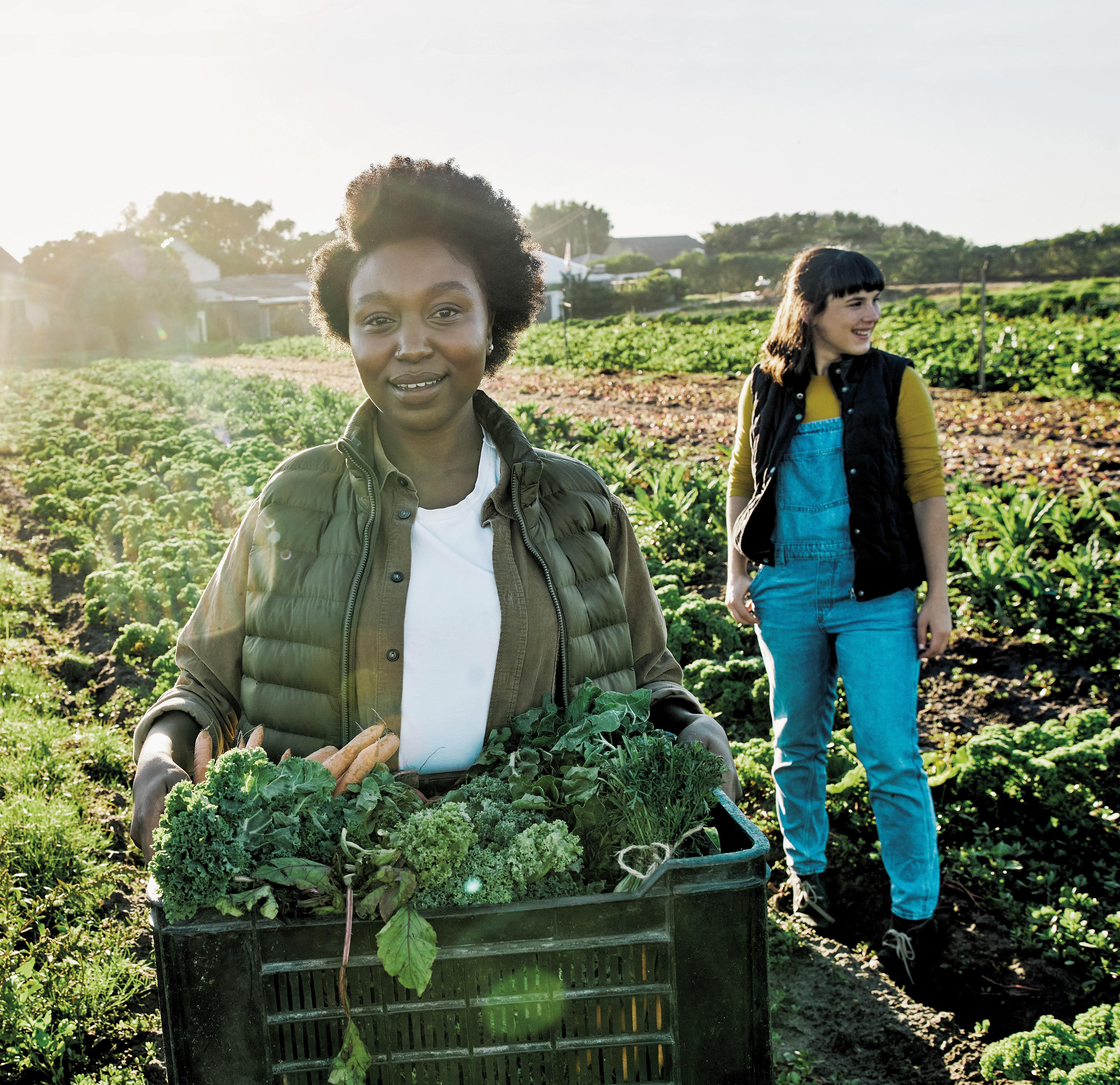
INSIDE THIS EDITION
A Season of Renewal at Your Vermont Foodbank
Bringing Fresh Food to People at Home
Speaking Up to Support Neighbors
Facing Hunger
Renovating Our Response to Hunger
vtfoodbank.org

Spring 2023

A Season of Renewal at Your Vermont Foodbank
Bringing Fresh Food to People at Home
Speaking Up to Support Neighbors
Facing Hunger
Renovating Our Response to Hunger
vtfoodbank.org
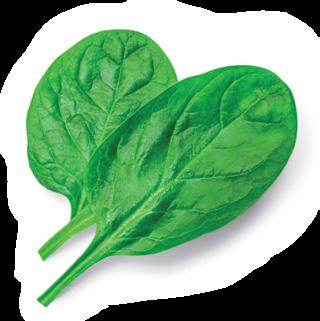
A fresh perspective and a new look can sometimes do wonders. A fresh coat of paint, a new shirt, or trying a new dish can spice up life and lift our spirits. You’ll notice a “fresh coat of paint” on this Spring issue of Kernels, as well as on your Vermont Foodbank website (coming soon). Also, after 23 years, the Foodbank’s Barre distribution center is fully rehabbed with a new, safer, more efficient layout and a better volunteer experience. I invite you to take a look, on page seven.
Everyone deserves a spring lift. Food prices, inflation, and supply chain issues are affecting food choices for many of us. Yet, limiting meals to only the most inexpensive ingredients available can become mundane and doesn’t nourish our whole selves. For neighbors experiencing hunger, this is even more acute.
Thanks to your support, your Foodbank is able to help make sure neighbors can look forward to springtime in Vermont and the fresh, local produce that’s on the way. Early greens from Vermont greenhouses are popping up in food shelves and at VeggieVanGo free produce events, and fields are being planted to feed us all summer and through the fall.
Your financial support, advocacy, and volunteer efforts ensure your Foodbank is a perennial in Vermont’s garden. Thank you!
John Sayles CEO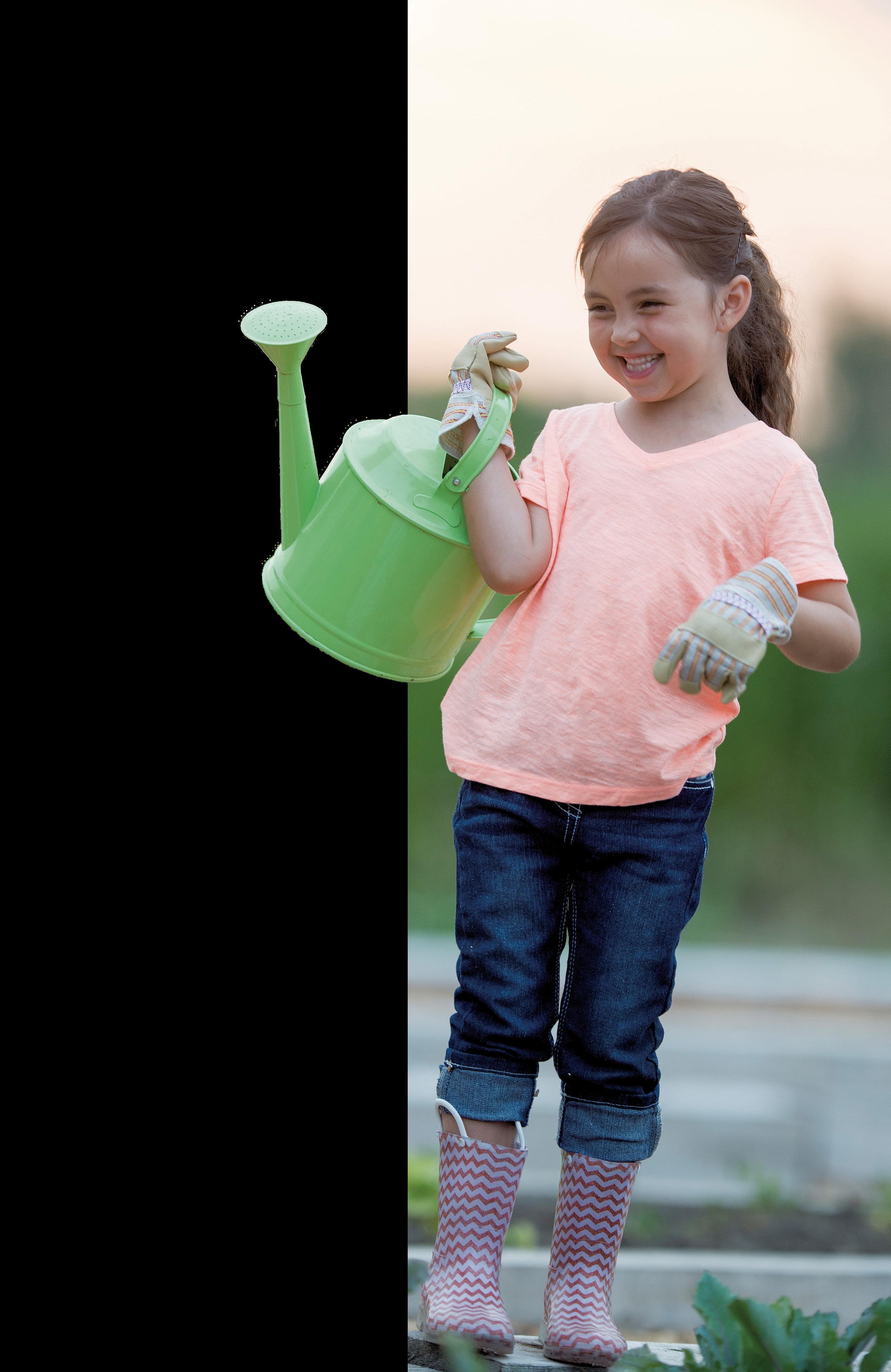
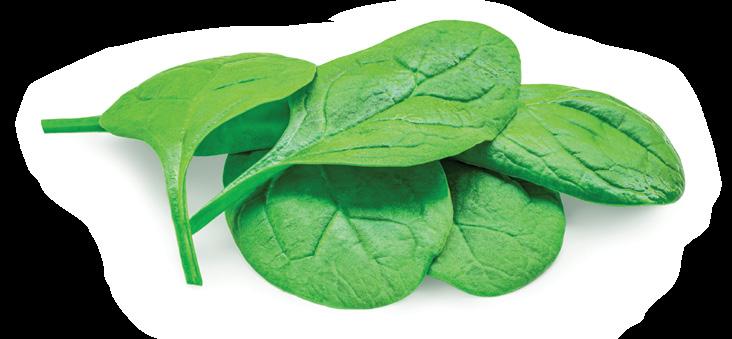

Older adults have access to fresh food at 45 housing sites across Vermont, with help from you.
Jennifer is a great cook. Living with leukemia, she focuses on how to stay nourished. Thanks to a partnership with a statewide wellness initiative, and your support, Jennifer can get free, fresh food delivered to her directly at home.
“My hope is to stay healthy and live another 10 years, with my cancer, and enjoy life. Which I’m doing presently,” shares Jennifer.
Jennifer is 65 ½ and has chronic leukemia. When she got her diagnosis 17 years ago, she moved from Memphis back to her hometown of Rutland.
“When I became disabled, I needed subsidized housing,” Jennifer explains. She likes her apartment—the closets, being centrally located, and the box of free food delivered to her home.
The building Jennifer lives in is one of the housing communities in Vermont that participates in Support and Services at Home (SASH), a wellness initiative providing free supports to residents on Medicare who live independently. The Vermont Foodbank partners with 45 SASH housing sites, delivering fresh foods that you help provide—like produce, dairy, and eggs—directly to where people live.
“It’s quite an adjustment when you get told [you have cancer],” Jennifer says. “And that’s why I’m hell-bent on eating good—and fresh, whole foods
like potatoes and what you deliver here.”
She explains having the food delivered directly to her home is especially helpful. “Because of my skeleton, I’m all broke down, certain days I can’t even go out shopping.”
“I have nothing but good to say about it,” says Jennifer. “I’m going to utilize whatever that box has in it to be able to save on my budget. It really helps out. I can use that extra money toward a phone bill.”
Some of Jennifer’s favorite dishes are lasagna, chowder, and stewed cabbage. She describes how she uses the apples she receives to make applesauce with raisins, cinnamon, and nutmeg that she’ll share with her neighbors. And how she’ll cut up the carrots for snacks, freeze some, and roast some.
“I don’t waste any food if I can help it,” she says. “I’m a wonderful cook, so I look forward to whatever is in there.”
“Who don’t love food?!” Jennifer laughs. “It’s one of the pleasures of life, you know.”
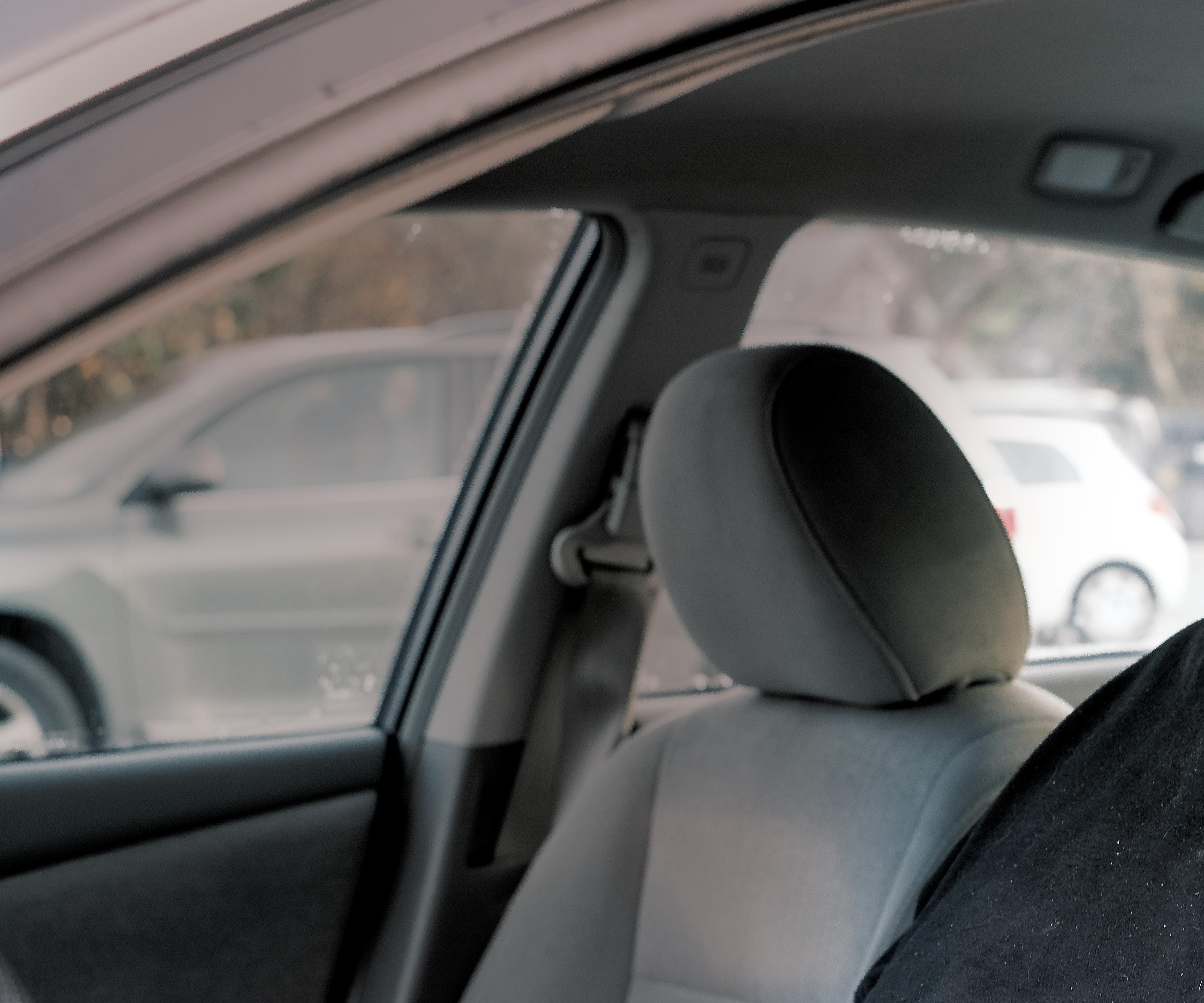
A lot changed for Joe after a medical emergency last year. No longer able to work, he found himself needing help with food for the first time. Now Joe is sharing his story and using his voice to support food access programs—and all the people who use them.
On the first day of the new year, Joe got a notebook and wrote Positive Thoughts at the top; then he added his first entry, January 1st: Thankful to be here. “Every day, I go in and I write a positive thought,” explains Joe. “I wrote one this morning. I’m gonna do that for a whole year. And then when I get to next January, I’m gonna go back and reflect on that.”
Joe is 60 years old and lives in Barre Town
with his dog Ace and his cat Bud Bud. He started driving trucks when he was 15, to help his mom pay the mortgage, and worked as a truck driver for 45 years—up until a medical emergency pushed him to retire last year. He spent four and a half days in a coma and two weeks in the hospital.
“That made me wake right up,” shares Joe. “I’ve taken every day for granted. But you know, it’s one
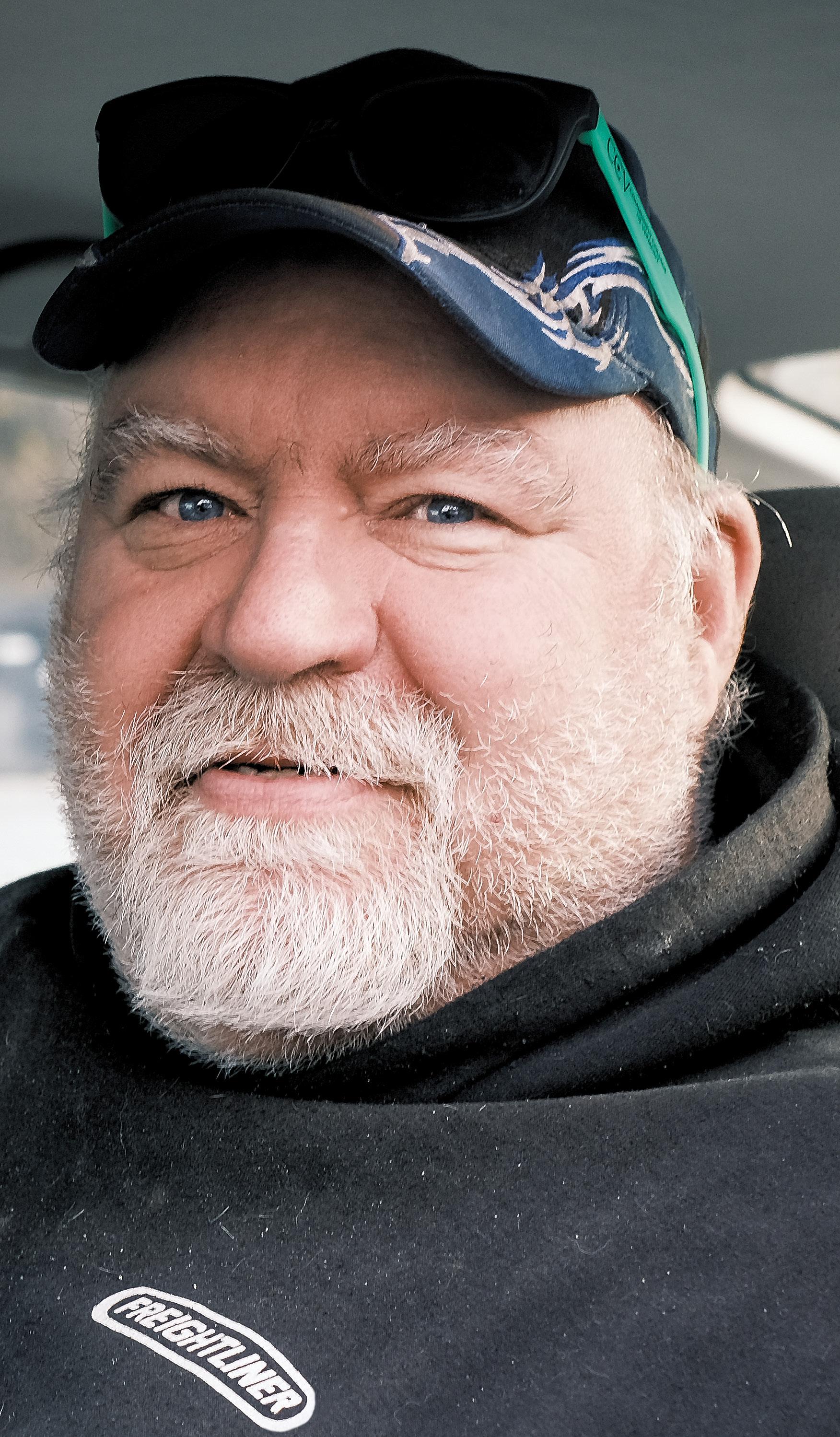
We all have a role in fighting hunger in VT. Thank you for making sure when neighbors need help, the Foodbank is there.
day at a time…So I’m taking better care of myself now. I’m eating better, I go for walks, I’ve done a whole program of [physical therapy].”
Since Joe got home from the hospital, and can’t drive trucks anymore, money has been tight.
“I had three weeks left of physical therapy and I couldn’t afford to go,” says Joe. “I have a policy with my disability, everything gets paid first, you know. I make sure the animals have their food, and whatever’s left over is mine to do whatever I want. But you gotta figure whatever I want has gotta be gas in the car, dinner, whatever. There’s
usually only $200 left at the end of the month.” Driving to his appointments would wipe out that $200. The Salvation Army helped pay for gas so Joe could finish physical therapy.
One day, Joe was talking to his physical therapists and told them he sometimes skips meals. They connected him with Vermont Foodbank’s free produce distributions, that you make possible, and 3SquaresVT (sometimes called SNAP or “food stamps”), a program that helps people buy groceries.
“Sometimes I don’t eat. I make sure my pets have food before I do,” Joe told his physical therapists. He laughs, “That was like opening a whole can of worms right there. And I thank them for that. Because they went and got me a bag of food, like you guys give, and I cried. You know, that was hard for me. I’m the type of guy that don’t want to accept help. But now I’m in a position where I need to.”
When Joe first visited a Foodbank free produce event, he says he was overwhelmed by the number of cars that were there. He picked up some fresh veggies and a recipe. “I went home and tried that,” says Joe. “It was a carrot soup. Oh my god that was awesome, I’ve made that a couple of times.”
He also likes to cook chicken, spaghetti with Alfredo sauce, and potato cakes with an egg cooked in the center. Joe visits his local food shelf and uses his 3SquaresVT benefits to get the foods he can’t get at the produce distribution—essentials like milk and butter. Support from community members like you is what keeps Foodbank produce events running, food shelves stocked, and application assistance for 3SquaresVT available for neighbors statewide.
Besides cooking, Joe enjoys NASCAR, fishing, writing poems, and bringing his mom to her hairdresser appointments. And a new hobby: Using his voice to support food access programs
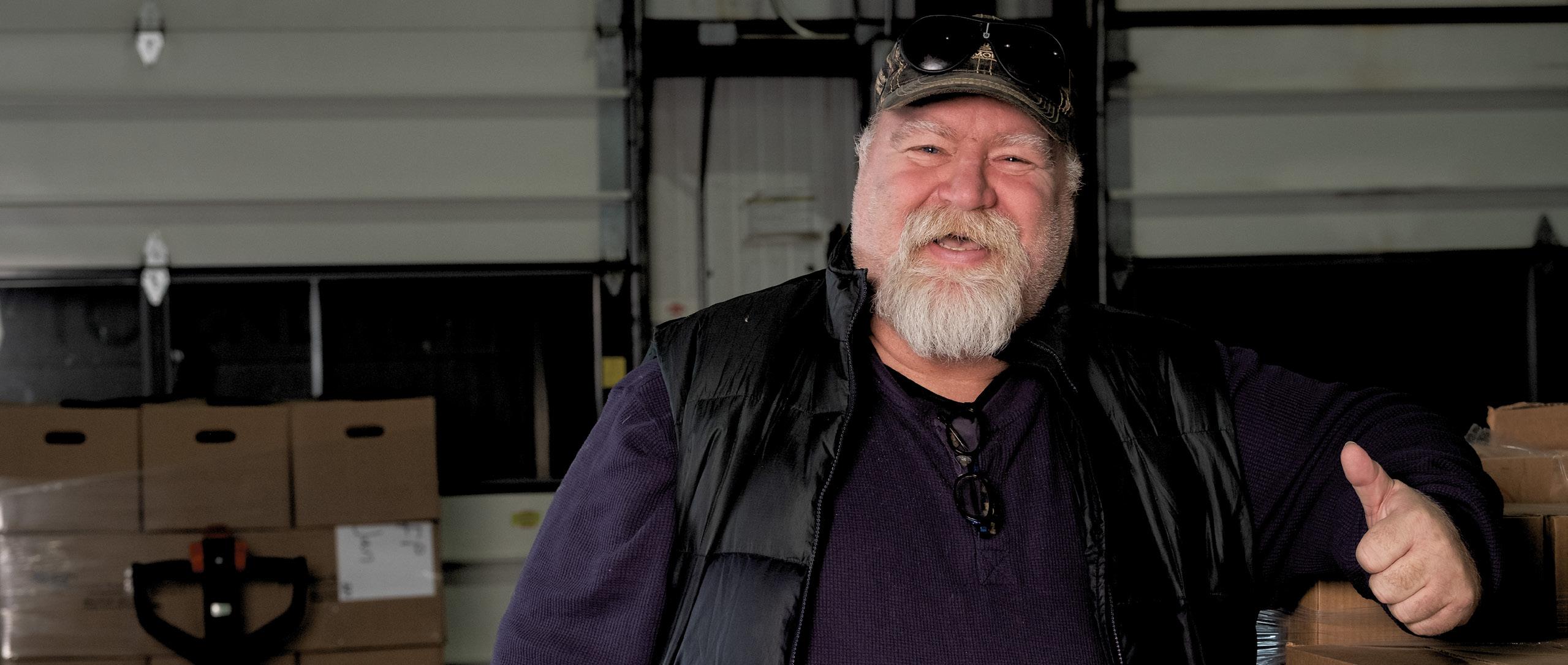
Food access programs are available to people facing hunger statewide—thanks to the support of friends like you and Joe.
and the people who use them.
Joe has an issue of the Times Argus that he keeps by his chair every day. On the front page is an article about the federal government cutting SNAP benefits this March.
“
“I’ve read this thing over and over again,” says Joe. “At first I was angry…We’re already struggling as individuals. Why do we go there in the first place? Because that program was for us. That program was for people with disabilities, seniors, families with kids, that can’t afford to eat or put food on the table, and they can’t afford to put gas in their car, can’t afford to get a job, and they can’t afford daycare, but yet you’re gonna take something that is really, really important to us, you want to take that away from us?”
experience,” explains Joe. “It wakes you. It wasn’t that I wasn’t awake to the situation, but it really woke me up to the situation. And I became humble. Because nobody’s above anybody else.”
It wasn’t that I wasn’t awake to the situation, but it really woke me up to the situation. And I became humble.”
“I had a good job; I always had a good job. I was married 150 times. Oh no, just kidding, twice,” Joe laughs. “But we always had food. We always made sure the kids had food, the bills were paid, we always had a nice home or whatever…
But coming here now, realizing that all these services are here is amazing. I never really knew…”
“I owe a whole gratitude of thank-yous. And you guys are one of ‘em. Because this here makes me realize that there is help out there for people that need it, and don’t be afraid to go ask.”
“And as I kept reading, I kept getting angrier…I’m talking to myself. You don’t care about this stuff Joe; you didn’t care about this stuff before. Well, now I do. And now I see how it really affects everybody else. And I don’t wanna be the sideline anymore. I want to be a voice for people that need it.”
“This whole thing has been a whole new
If

Vermont Foodbank’s Barre headquarters was built in 2000, for a Foodbank distributing almost entirely shelfstable food. No longer meeting our community’s needs, we launched the Leading with Health campaign in 2018 to fund upgrades including: quintupling fresh food freezer/cooler capacity, renovating the warehouse, and redesigning office and volunteer space. The freezer and cooler addition was completed in 2019, just in time to support the exponential demands of the pandemic. While all the funds were in hand in 2020, we delayed completion of the rest of the project in order to focus on pandemic response. It has been worth the wait, and we are thrilled to have a facility poised to meet the needs of neighbors across Vermont for the next 20 years.

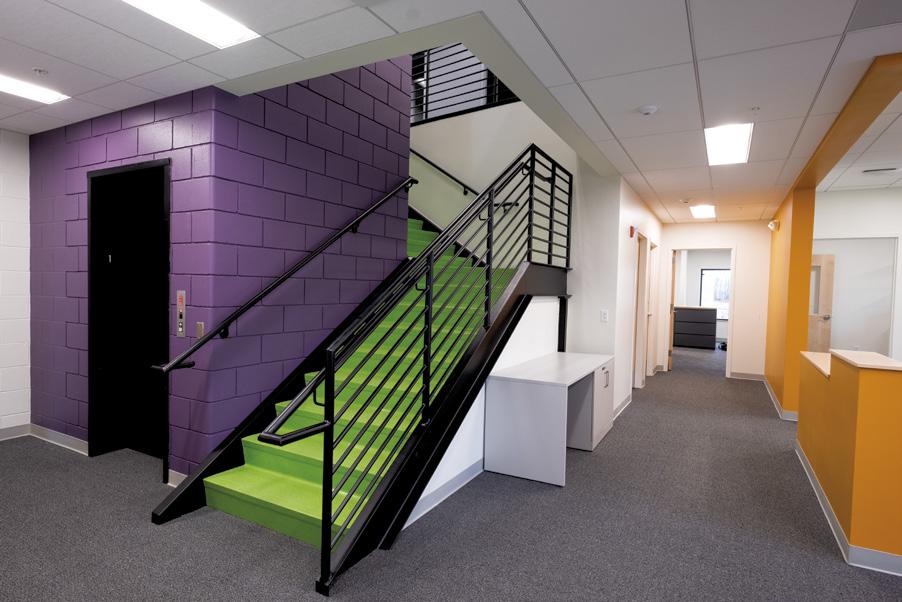


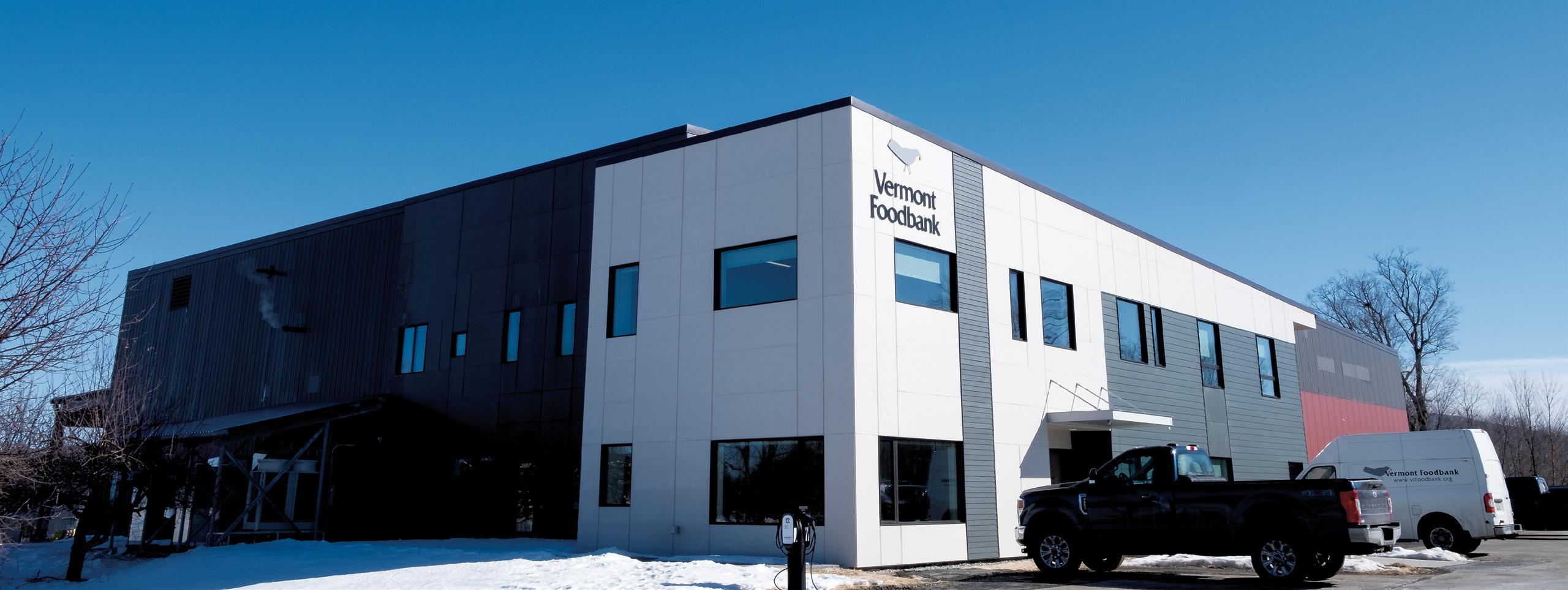
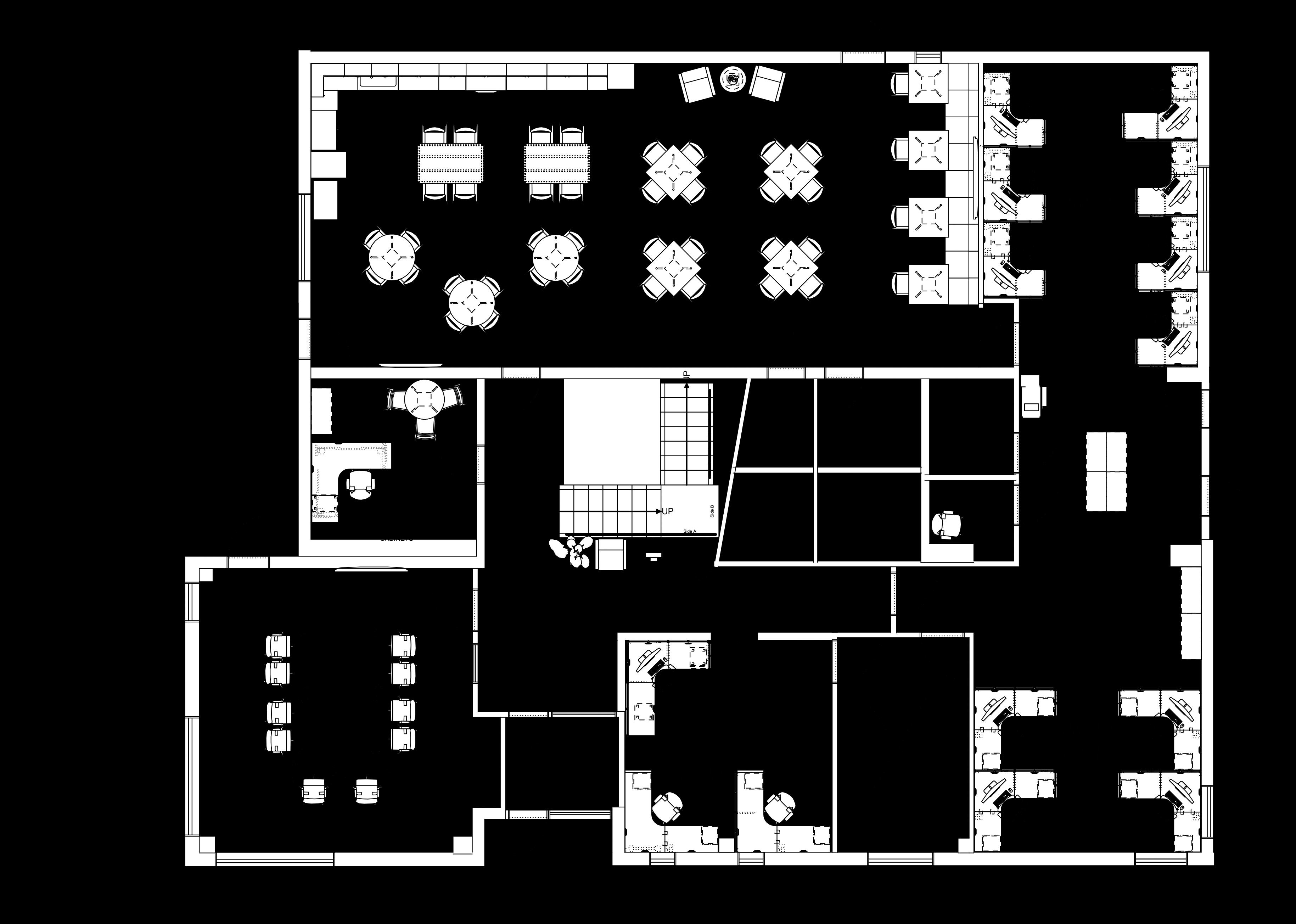

This year, as summer approaches, parents are worrying about how to feed their children—even more than usual.
Each year, family budgets are required to stretch to cover added expenses that arise when school is out: childcare or summer camp become a necessity for working parents, and grocery bills increase to make up for the free school breakfasts and lunches that aren’t available to kids over the summer.
This year, 10 weeks of school break feels extra stressful. A year of Universal School Meals in
With your help, we can make sure food shelves in every county in Vermont are stocked with nourishing food and that free, fresh fruits and veggies are available all summer long—so that kids and families have access to the food they need when they need it.
A gift of $35 can help provide a family with $145 worth of food—and make summer better for
